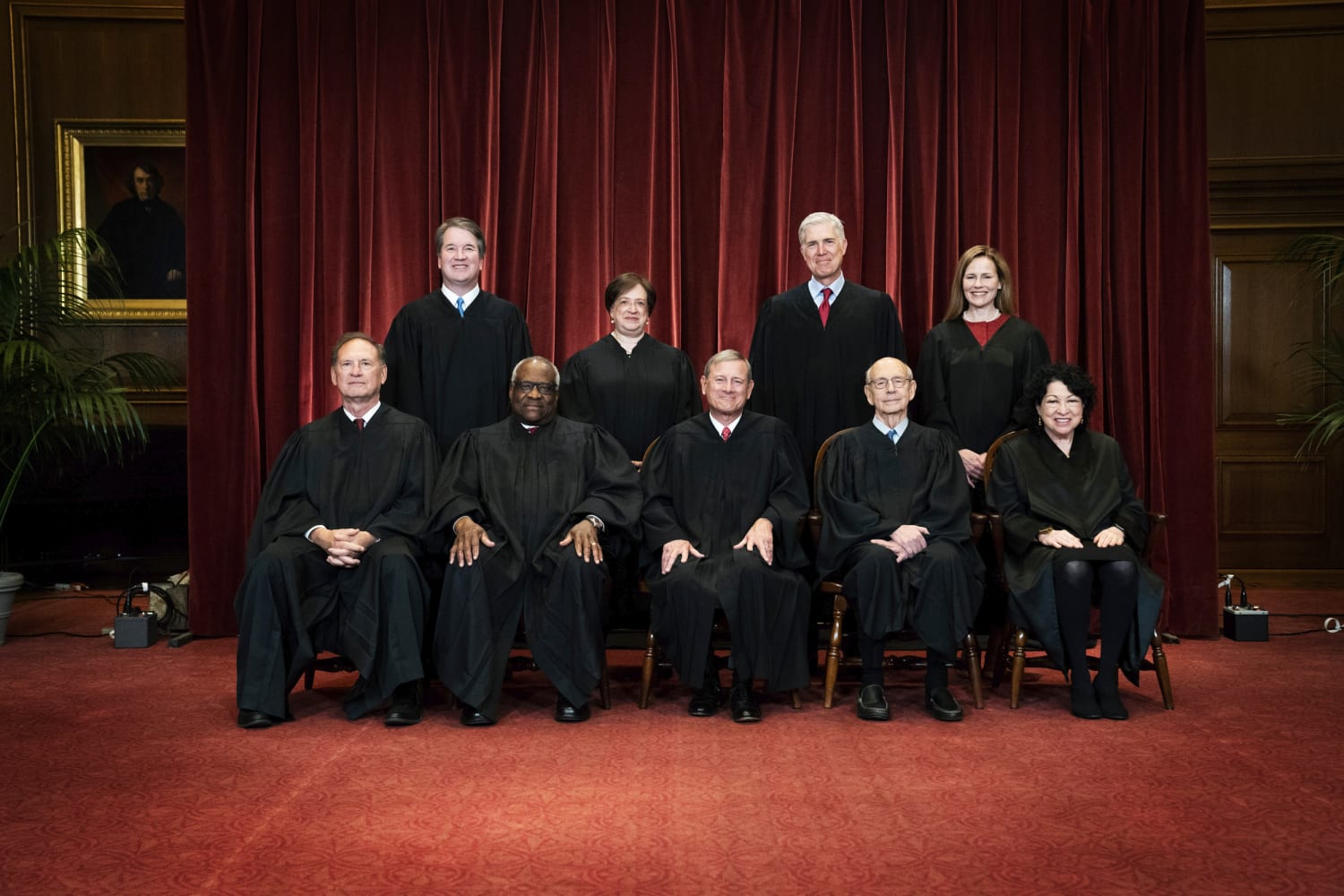Because of the cross-ideological lineup of Supreme Court justices in the majority of several high-profile decisions, as well as the perceived narrowness of those decisions, the Roberts court has been depicted as exemplifying moderation and restraint. That narrative is a mistake. Over the course of the session that just wrapped up, several lower-profile decisions featured more traditional partisan divisions — and those decisions are likely to be extremely consequential.
The pair of decisions the court released on the final day of the term underscore its partisan divisions on another key GOP area of concern: voting rights and democratic norms.
For example, June’s 6-3 decision in Cedar Point Nursery v. Hassid invalidated a longstanding California labor regulation that made it easier for migrant agricultural workers to unionize. In doing so, it continued the Roberts court’s attacks on workers’ ability to organize, providing a powerful tool in the conservative legal project’s deregulatory agenda. And the decision this past week in Brnovich v. Democratic National Committee further weakens the protections of the Voting Rights Act, while Americans for Prosperity Foundation v. Bonta facilitates dark money contributions that enable the minority political rule of the Republican Party.
These sharply split decisions, and their reasoning, are better indications of the ideological slant of the Roberts court than California v. Texas, which dismissed a challenge to the Affordable Care Act in a 7-2 decision in which all the liberal justices joined, or Mahanoy Area School District v. B.L., in which all but conservative Justice Clarence Thomas voted to uphold a teenager’s free speech rights outside of school. While these decisions leaned more liberal in their outcomes and judicial makeup, they were ultimately too narrow to set wide precedents.
Instead, the decisions this term in which the court divided along partisan lines were more legally momentous rulings. In Jones v. Mississippi, the court’s six conservatives made it more difficult for juveniles to challenge life-without-parole sentences. (The court declined to require judges to find — or even assess — whether juveniles were permanently incorrigible before sentencing them to life without the possibility of release.) In Edwards v. Vannoy, the conservative supermajority concluded that individuals who were previously wrongfully convicted by nonunanimous juries couldn’t challenge their convictions.
This ideological orientation was even clearer in decisions on issues that are core to the Republican Party’s agenda today: protecting the interests of the wealthy and business as well as eroding voting rights, including Cedar Point Nursery and Brnovich. While the precise implications of the court’s decision in Cedar Point Nursery will turn on how the judiciary applies its newly fashioned legal test for what constitutes a property taking, it marks a significant shift in property rights jurisprudence — and a significant blow to unions.
The California regulation at issue required farms to allow union organizers onto certain parts of their property the hour before and after work, as well as on workers’ lunch breaks. (The union organizers could only be there 120 days a year.) The growers argued that the regulation amounted to a “taking” of their property — requiring the government to pay them for using their land. (The Fifth Amendment prohibits taking of private property without just compensation.)
Writing for the court’s six conservatives, Chief Justice John Roberts accepted the growers’ argument that the California regulation amounted to a taking because it gave other persons the “right to invade” the owners’ property. That means California must pay the growers in order to allow organizers onto their lands.
The potential breadth of the court’s ruling is astonishing. Consider the sheer number of laws that require property owners to allow inspectors, for instance, onto their property. Justice Stephen Breyer, in his dissent for the court’s three liberals, listed property inspections for workplace safety, food safety, welfare reasons and so on.
There are also myriad laws that require business owners to permit persons onto their property whom they would prefer to exclude. The Civil Rights Act of 1964, for example, prohibits a business from discriminating on the basis of race, sex, religion or national origin. The Fair Housing Act prohibits landlords from discriminating on the basis of race or sex.
The opinion in Cedar Point Nursery is important not only because of its (potentially) sweeping implications but also because it’s a hallmark of how the Roberts court is advancing conservative causes. The court’s reasoning in the takings clause could provide a powerful deregulatory tool — and a cudgel against myriad regulations.
The opinion is also part of a trend of judicial antagonism from the conservative wing of the Roberts court toward workers’ rights and unions. Most famously, in 2018 the Roberts court’s conservative and liberal justices split along ideological lines to invalidate public sector unions’ ability to collect “fair share” fees from workers on whose behalf they negotiated — a major blow to public sector unions’ finances. A decision with the same partisan divide that same year limited workers’ ability to bring a collective action in court challenging an employer’s failure to pay overtime or minimum wage.
The pair of decisions the court released on the final day of the term underscore its partisan divisions on another key GOP area of concern: voting rights and democratic norms. In Brnovich, handed down Thursday, Justice Samuel Alito wrote an opinion for the six conservatives that eviscerates the provision of the Voting Rights Act that is supposed to protect against voting laws or policies that result in greater disadvantages to racial minorities.
The court essentially embraced the idea that states have an interest in rooting out voter fraud even when they have no evidence of such fraud. This reasoning will make it more difficult for plaintiffs to prevail in future Voting Rights Act challenges amid a wave of voter suppression.
Similarly, in Americans for Prosperity, also handed down Thursday, the court struck down California’s requirement that nonprofit organizations submit the names of large donors in order to enable the state to safeguard against fraud and to verify the accuracy of financial reports. The court reasoned that the donors to conservative causes who brought the case faced an unduly high risk of harassment and that the state had not shown it actually needed the donor information.
These decisions show the true colors of the Roberts court. They underscore its partisan, ideological divisions and the consequences they will have for the country. A few decisions that garner the support of more liberal justices and that don’t satisfy every conservative ambition don’t change that reality.
Source: | This article originally belongs to Nbcnews.com










